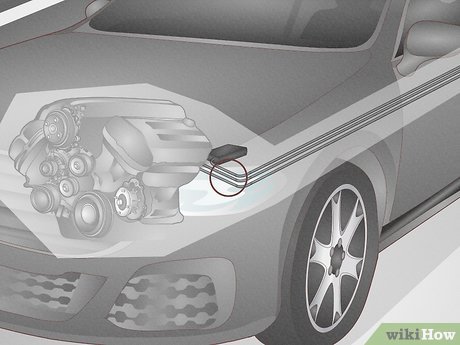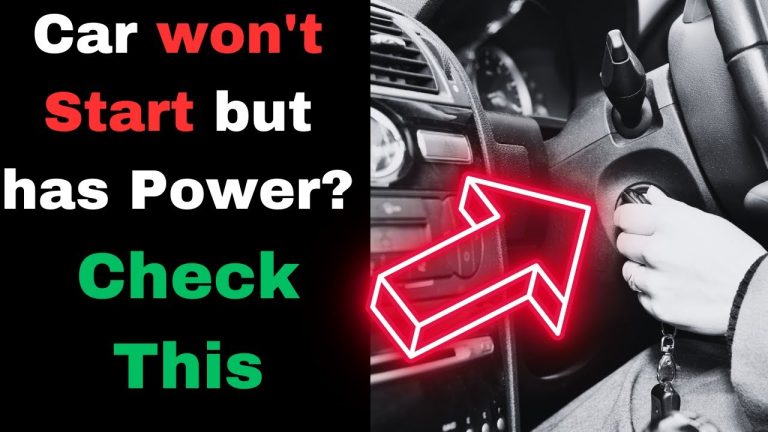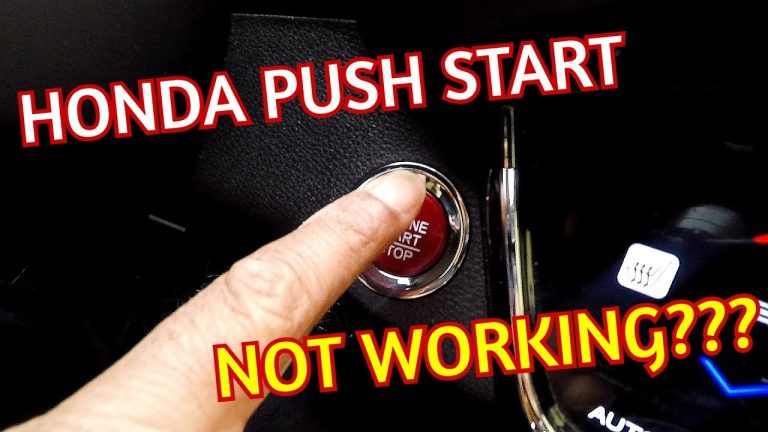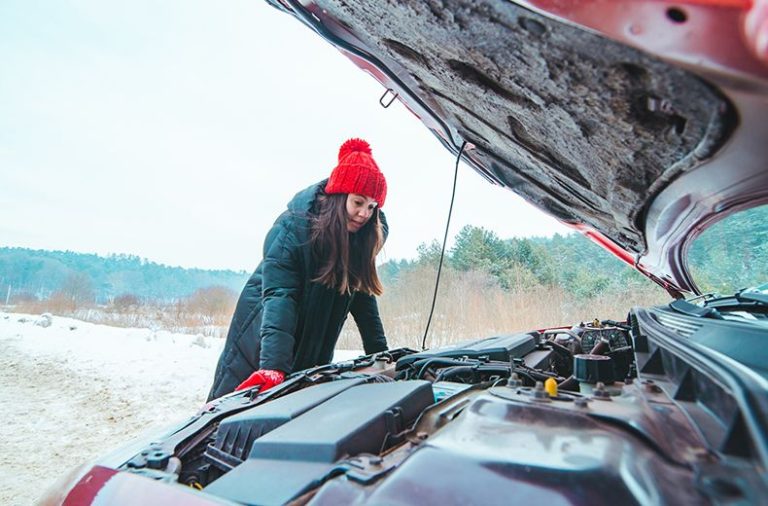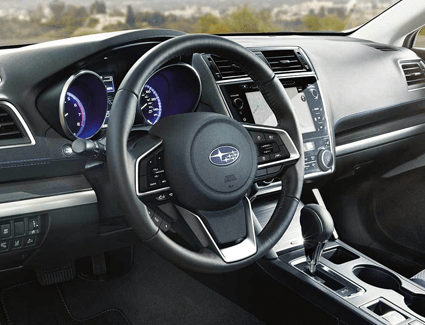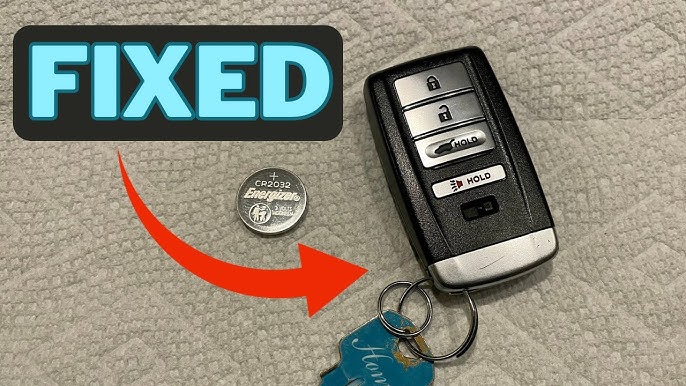Car Has Trouble Starting After Getting Gas: Quick Fixes
If your car has trouble starting after getting gas, it’s often due to a faulty evaporative emissions (EVAP) system, like a stuck purge valve. This can cause excess fuel vapors to flood the engine. A loose or damaged gas cap can also trigger starting issues. Have both checked promptly.
You’re not alone in this experience, and understanding why it happens can save you time, money, and worry. We’ll dive into the common reasons why your car might struggle to start after refueling. We’ll provide simple solutions and tips to keep you driving smoothly.
Curious to know if it’s a minor issue or something more serious? Stay with us and uncover the mystery behind your car’s reluctance to start after getting gas.
Common Causes Of Starting Issues
Car Has Trouble Starting After Getting Gas. It’s a common issue many drivers face. Understanding the root causes can help in finding a solution. Several factors can lead to this problem. Below, we dive into the most common reasons.
1. Fuel Pump Malfunction
The fuel pump plays a critical role. It delivers fuel from the tank to the engine. A malfunctioning pump can disrupt this flow. This can result in starting issues after refueling.
2. Faulty Fuel Filter
A clogged fuel filter can impede fuel flow. This blockage can prevent the engine from getting enough fuel. After filling up, sediment can stir up, worsening the issue.
3. Vapor Lock
Vapor lock occurs when fuel vaporizes in the fuel line. This is common in hot weather. It can cause a blockage, preventing fuel from reaching the engine.
4. Battery Issues
The battery might lose charge while refueling. Corroded terminals can also hinder power flow. A weak or dead battery can prevent the car from starting.
5. Starter Motor Problems
The starter motor cranks the engine. If it fails, the engine won’t start. Wear and tear or electrical issues can cause starter motor problems.
6. Faulty Ignition Switch
The ignition switch sends power to the starter. A faulty switch can interrupt this process. This can lead to starting difficulties.
7. Fuel Injector Blockage
Fuel injectors spray fuel into the engine. Blocked injectors can cause uneven fuel distribution. This can result in starting problems.

Credit: www.youtube.com
Checking The Battery
Experiencing trouble starting your car after refueling can be frustrating. One common culprit could be the battery. Checking the battery is a simple and effective way to diagnose the issue. A weak or dying battery can cause your car to struggle when starting. Understanding how to check the battery can save you time and effort.
Inspecting Battery Connections
Loose or corroded battery connections can impede power flow. Ensure all connections are tight and clean. Corrosion can be identified by a white, powdery substance. Cleaning this corrosion can improve the connection. Use a wire brush or battery cleaner for this task.
Testing Battery Voltage
Low voltage can indicate a weak battery. Use a multimeter to measure the voltage. A fully charged battery should read around 12.6 volts. Anything lower might require a recharge or replacement. Regularly testing your battery can prevent unexpected issues.
Checking Battery Age
Batteries don’t last forever. Most have a lifespan of 3-5 years. If your battery is older, it might be time for a replacement. Check the date code on the battery. This will help you know its age and decide on a replacement.
Look For Warning Signs
Listen for clicking sounds when starting your car. This can mean the battery is weak. Slow engine cranking is another sign of battery trouble. Dim headlights or interior lights might also indicate a problem. Recognizing these signs early can prevent car starting issues.
Examining The Fuel System
Sometimes, cars struggle to start after refueling. It’s often due to fuel system issues. The fuel system is vital for engine performance. Understanding its components can help identify problems.
Fuel systems transport gasoline from the tank to the engine. They must work smoothly for the engine to start. Issues in this system can cause starting troubles.
Checking The Fuel Pump
The fuel pump is crucial. It pushes fuel from the tank to the engine. A faulty pump can disrupt fuel flow. This can lead to starting problems after refueling.
Listen for unusual sounds from the pump. Whining or sputtering may indicate issues. Address these signs early to prevent further damage.
Read more: Key Won’t Turn in Ignition: Troubleshooting Tips
Inspecting Fuel Filters
Fuel filters keep impurities out of the engine. A clogged filter can restrict fuel flow. This affects starting after getting gas.
Regularly replace fuel filters to maintain engine efficiency. Clean filters ensure smooth fuel delivery. This minimizes starting troubles.
Assessing Fuel Lines
Fuel lines carry gasoline from the tank to the engine. They must be free of leaks. Leaks can cause fuel pressure loss and starting issues.
Check for cracks or wear in the lines. Repair or replace damaged lines promptly. This helps maintain fuel pressure.
Reviewing The Fuel Pressure Regulator
The fuel pressure regulator maintains consistent pressure. Faulty regulators can cause fluctuating pressure. This may lead to starting problems.
Test the regulator for proper function. Ensure it maintains stable pressure. Replace faulty regulators to restore normal operation.
Examining The Fuel Injectors
Fuel injectors spray gasoline into the engine. They must be clean for efficient operation. Dirty injectors can affect engine starting.
Regular cleaning of injectors is essential. This improves fuel spray and engine performance. It can reduce starting troubles significantly.

Credit: www.youtube.com
Inspecting The Ignition System
Experiencing trouble starting your car after refueling might indicate issues with the ignition system. Check spark plugs and wires for wear. Ensure connections are tight and clean.
When your car has trouble starting after refueling, the ignition system might be the culprit. This crucial component is responsible for igniting the fuel-air mix in your engine, setting your car in motion. But what happens when it falters? A quick inspection can reveal if it’s the source of your woes, helping you get back on track without delay.
Check The Spark Plugs
Begin with the spark plugs. These small parts create the spark needed to start your engine. If they’re worn out or covered in grime, they can’t do their job properly. You can pull them out and give them a visual inspection. Look for signs of wear, like cracks or a burnt appearance. If they look bad, replacing them might solve the issue.
Examine The Ignition Coils
Ignition coils are another key player. They transform the battery’s voltage into the power needed to spark the plugs. If your car hesitates when starting, the coils might be weak or failing. You can test them with a multimeter to see if they’re delivering the right voltage. A faulty coil can lead to misfires, so make sure they’re in good shape.
Look At The Wiring And Connections
Don’t overlook the wiring and connections. Damaged or loose wires can interrupt the flow of electricity, preventing your engine from starting. Check for frayed wires or loose connections around the ignition system. Tightening or replacing them could make a big difference.
Consider The Ignition Switch
The ignition switch is your car’s starting point. If it’s malfunctioning, it might not send the signal to start the engine. Turn the key and listen for clicks or unusual sounds. If it feels off, it might need a replacement. This simple fix can sometimes solve starting issues instantly.
Inspecting your ignition system can seem daunting, but it’s often a straightforward process that can save you time and money. Have you ever faced a similar issue? What did you find was the problem? Sharing your experiences might help others in the same boat.
Simple Diy Solutions
Experiencing trouble starting your car after refueling can be frustrating. Often, simple DIY solutions can address this issue effectively. These solutions require minimal tools and expertise, making them accessible for most car owners. By understanding common causes, you can quickly diagnose and resolve the problem. Let’s explore some straightforward fixes.
Check The Fuel Cap
Start with the fuel cap. A loose or damaged cap can affect the fuel system. Ensure it’s tightly secured after refueling. Inspect the cap for cracks or wear. If necessary, replace it with a new one. This simple step can often prevent starting issues.
Inspect Fuel Quality
Bad fuel can cause starting problems. Check the fuel for contamination. Water or debris in the fuel can prevent the car from starting. Use a fuel additive to improve quality. Choose additives that remove moisture and deposits. They help ensure smooth engine performance.
Examine The Battery
A weak battery might be the culprit. Check the battery connections. Ensure they are clean and secure. Test the battery voltage with a multimeter. A reading below 12 volts indicates a weak battery. Consider replacing it for better reliability.
Assess The Spark Plugs
Spark plugs play a vital role in starting. Check them for dirt or damage. Clean or replace them if necessary. Clean spark plugs ensure proper ignition. This can solve starting issues efficiently.
Look At The Air Filter
A clogged air filter can hinder starting. Inspect the filter for dirt and debris. Replace it if it’s dirty or worn. A clean air filter improves engine airflow. This helps the car start smoothly after refueling.

Credit: www.wikihow.com
Frequently Asked Questions
Why Is My Car Hard To Start After Refueling?
Your car may be hard to start after refueling due to a faulty purge valve or vapor lock. Check for a blocked fuel line or a defective fuel pressure regulator. Ensure the gas cap is secure and inspect the fuel pump for issues.
Regular maintenance can prevent these problems.
Why Does My Car Act Weird After Getting Gas?
Your car may act weird after refueling due to contaminated gas, a faulty gas cap, or a clogged fuel filter. These issues can lead to poor engine performance, stalling, or reduced fuel efficiency. Addressing these problems promptly can help restore your car’s normal functioning.
Why Does My Car Struggle When I Hit The Gas?
Your car may struggle due to a clogged fuel filter, faulty spark plugs, or a failing fuel pump. Check for vacuum leaks or dirty air filters. Regular maintenance can prevent these issues. If the problem persists, consult a mechanic for a comprehensive diagnosis.
Why Does My Car Sputter After I Get Gas?
A car sputtering after refueling might indicate issues like contaminated fuel, a clogged fuel filter, or a malfunctioning fuel pump. Check for any leaks around the fuel tank. Ensure the gas cap is tightly sealed. If problems persist, consider a professional inspection to diagnose and resolve the issue effectively.
Read more: Car Won’t Start After Jump: Troubleshooting Tips
Why Does My Car Struggle To Start After Refueling?
It might be a faulty fuel pump or a vapor lock issue. Check these components first.
Conclusion
Car Has Trouble Starting After Getting Gas. Possible causes include a clogged fuel filter, faulty fuel pump, or dirty spark plugs. Regular maintenance can prevent these issues. Ensure your car gets timely check-ups. This can save you from unexpected breakdowns.
Pay attention to any unusual noises or smells. They might signal a problem. If unsure, consult a mechanic. They can diagnose and fix the issue quickly. Understanding your car’s needs helps in maintaining its health. Safe travels start with a well-maintained vehicle.
Keep your car running smoothly for stress-free journeys.

